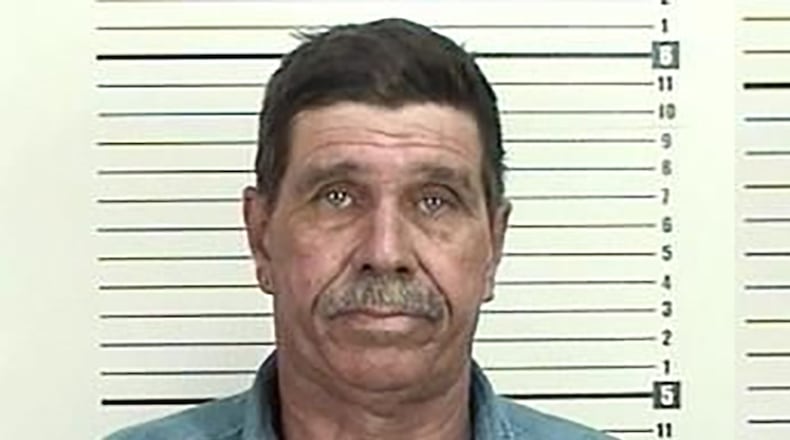On March 11, 1985, a gunman walked into a historic Black church in South Georgia and gunned down Harold and Thelma Swain.
In 2021, spurred on by the Georgia Innocence Project and an award-winning Atlanta Journal-Constitution investigation, a judge exonerated Dennis Perry, the suspect originally convicted in the killing.
Credit: Ryon Horne and Tyson Horne / The Atlanta Journal-Constitution
And late Monday, the Georgia Bureau of Investigation announced the arrest of Erik Sparre — the man they believe truly responsible for the decades-old crime. He’s in the Camden County jail, officials said, charged with two counts apiece of murder and aggravated assault.
In a statement provided to the AJC, Perry said he remains hopeful the Swains will receive justice.
“It’s not about me — it’s about justice for the Swains,” Perry said. “The wheels of justice move real slow.”
The Swains’ deaths at Rising Daughter Baptist Church roiled the community near Waverly, about half an hour west of Brunswick. But the case sat unresolved for years.
While initial investigators believed Perry when he said he was working near Atlanta that day, a cold case investigation landed him in jail in 2000. A jury convicted him in 2003.
But as now-former AJC reporter Joshua Sharpe, who’s currently working on a book about the case, reported in his 2020 project “The Imperfect Alibi,” prosecutors withheld key information at trial: namely that the state’s star witness, the mother of Perry’s ex-girlfriend, earned $12,000 for testifying.
She told the jury Perry had shared plans to kill Harold Swain.
Sharpe said Tuesday he “didn’t have any idea what was going to happen” when he first started looking at the case.
“I just knew that I was terrified that they’d gotten it wrong,” he said.
It turns out they had. His reporting, which built on findings in the “Undisclosed” podcast, helped free Perry from incarceration in 2020 — and put the focus on Sparre.
Suspicions about Sparre, a purported white supremacist, had circulated in the wake of the Swains’ death, but investigators accepted his offered alibi. His supposed manager at Winn-Dixie told police over the phone that Sparre was working at the grocery store the night of the killings.
Sharpe, though, debunked it. He found that the person on the phone had used a fraudulent name, Social Security number and contact information. The original investigator couldn’t recall for sure, but he likely got the manager’s number — which did not correspond to the Winn-Dixie — from Sparre himself.
That finding encouraged the Georgia Innocence Project and Perry’s other attorneys at King & Spalding to conduct a DNA test, which the GBI says ties Sparre to the original crime scene. He also told multiple people about the shooting, according to police and court records.
In previous interviews with the AJC, Sparre proclaimed his innocence. The GBI declined to provide additional information about their decision to arrest the 61-year-old.
It was unclear if he’d hired an attorney.
Credit: Tyson Horne / tyson.horne@ajc.com
Credit: Tyson Horne / tyson.horne@ajc.com
Joe Gregory, a GBI agent, and Butch Kennedy, Camden County’s chief sheriff’s deputy, were the original investigators assigned to the Swain case and worked it for many years. Both men, now retired, investigated Perry in 1988 and found it all but impossible for him to have been at the crime scene.
This week’s news, Gregory said, “is the best Christmas present Butch and I could ask for.”
Jennifer Whitfield, an attorney who represented Perry for the Georgia Innocence Project, said nothing can really rectify what happened to her client. But, she said, “watching him build a life is a beautiful thing.”
About the Author
Keep Reading
The Latest
Featured






